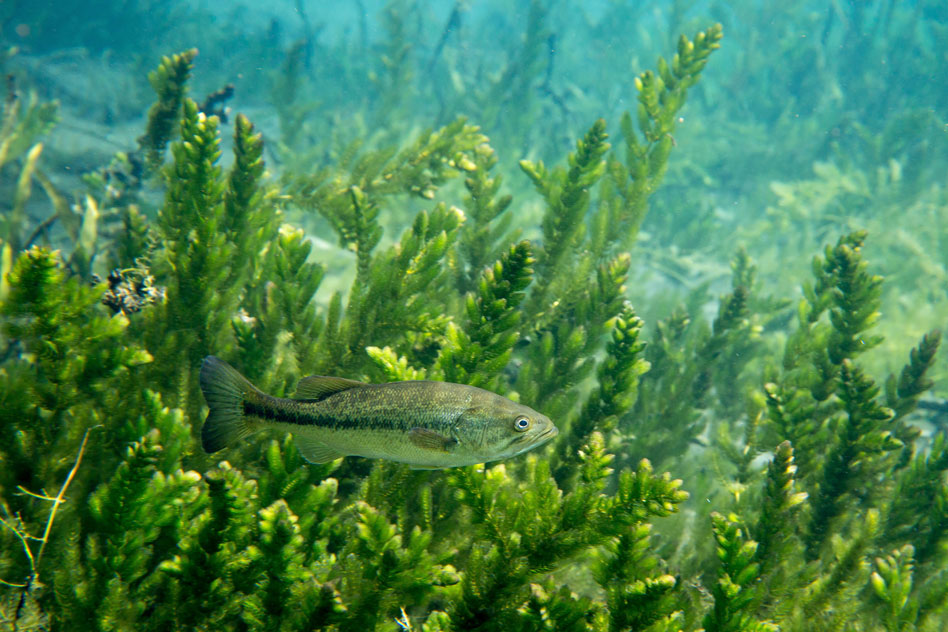Hotter Summers Spell Catastrophe for Fish
Biology thesis predicts that catastrophic fish die-offs will quadruple in Wisconsin lakes by 2100.
Fish die-offs in Wisconsin lakes are expected to double by mid-century and quadruple by 2100 due to warmer summer temperatures, according to a new study in the journal Nature Climate Change based on the senior thesis of bio major Aaron Till ’18.
To better understand how fish die-offs are changing, Till worked with his advisor, Prof. Samuel Fey, a population and community ecologist and assistant professor in the biology department; Prof. Andrew Bray, a statistician and assistant professor in the math department; and researchers from the University of California, Davis. Together they analyzed a database of freshwater fish die-offs in Wisconsin combined with lake temperature data and simulations. They found that more than 100 of 500 fish die-offs recorded between 2004 and 2014 in the state were strongly linked with heat waves and warmer average surface water temperatures.
“This research takes a substantial step forward in connecting the dots between the occurrence of rare ecological catastrophes and climate warming,” said Prof. Fey. “Historically, the causes of animal die-offs have been difficult to study because these events tend to be rare and unpredictable.”
Summertime die-off events occurred in lakes that were warmer than lakes without die-offs, and during years of particularly high water temperatures.
‘What climate change will look like’
The scientists used climate projections to forecast fish die-offs driven by warming summer temperatures over the coming decades. Their results indicate a sobering future for common species such as bluegill, walleye, largemouth bass and northern pike that inhabit these lakes. In the modeling, significant numbers of fish die-offs occurred with an increase of just 2 degrees Celsius, which the globe is on track to surpass by 2100.
“This study is unveiling another reality of what climate change will look like for north-temperate lakes across the world,” said co-author Andrew Rypel, an associate professor at UC Davis and the Peter B. Moyle and California Trout Chair in Coldwater Fish Ecology. “Analyses provide an up-close view of how fish populations will die, and how species will die due to climate change. It’s particularly problematic for freshwater fishes in landlocked lakes, as they don’t have the ability to adapt to changing climates by migrating. Effects have to be dealt with by managers right where they are.”
Adaptation opportunities
The study shows most future fish kills are expected to occur in the southern portion of the state, which is the warmest and most populated part of Wisconsin. Urban, agricultural and industrial activities combine to impact lakes in the area.
Rypel says this presents a problem for fish but also opportunities for their management, adaptation and resilience. Cities, communities and resource managers could take measures to improve lake conditions through heightened efforts to manage phosphorous loads and restore forests around riparian areas to act as a sponge for contaminants that could otherwise enter the lake.
“It feels great to know the research is finally out there,” Aaron says. “Almost as good as passing my orals. I owe a tremendous amount to Sam and Andrew for keeping this rolling after I graduated.” He is currently a data research associate at M Science in Portland.
Tags: Academics, Awards & Achievements, Cool Projects, Editor's Picks, Professors, Research, Students, Thesis
